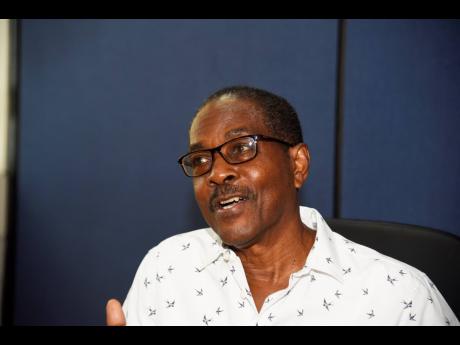Lawmakers warned to tread carefully on report
Retired Justice Seymour Panton, the chairman of the Integrity Commission (IC), has made it clear that there was no committee of Parliament that can interfere with the ruling by Director of Corruption Prosecution (DCP) Keisha Prince-Kameka against Speaker of the House of Representatives, Marisa Dalrymple Philibert.
The Speaker, who presided over the tabling of a damning report from Director of Investigations Kevon Stephenson and the DCP’s ruling, referred the reports to the Integrity Commission Oversight Committee and the Ethics Committee of Parliament for deliberations.
With the DCP’s ruling that the Speaker should face eight charges, including breaches of the Integrity Commission Act and making false statement in her statutory declaration over a six-year period, Panton said only Director of Public Prosecutions (DPP) Paula Llewellyn can stop a prosecution launched by the DCP.
“There is no authority other than the director of public prosecutions who can stop a prosecution launched by the director of corruption prosecution,” Panton told The Gleaner yesterday.
The chairman of the anti-corruption body said the IC’s report and ruling were copied to the deputy speaker, Juliet Holness, “because of what we saw as a conflict involving the Speaker herself tabling her matter. That’s why we sent the report to the deputy speaker”.
In its cover letter to Parliament on September 11, the IC asked the officials of the House to “take special note that the subject of the referenced investigation is the sitting Speaker of the House of Representatives”.
In that regard, the IC stated that, “in the interest of good governance, the Hon Speaker may deem it appropriate to recuse herself from the parliamentary processes that are associated with the matter”.
However, the Speaker presided over both the tabling of the investigation report and ruling by the DCP as well as to refer both documents to the IC Oversight Committee and the Ethics Committee for discussion.
The IC made it clear that “it is for this reason that this letter is also addressed directly to the deputy speaker and the clerk to the Houses”.
At the same time, Panton has cautioned lawmakers who are members of both committees to tread carefully as the ruling would be the subject of a court matter and as such the subjudice rule should be observed.
“Of course they are in Parliament and they would not want to be doing something which is going to be published which breaches the subjudice rule,” he said.
“They have a bunch of lawyers in Parliament, very learned people, one would expect them to remember that once a charge is involved there should not be discussion as to merits and so on which will be a matter for a court to be determined,” the IC chairman added.
He stressed that the general rule applies that when a matter is before the court utterances should not be made that could be prejudicial to the trial.
Earlier this year, a government senator in his State of the Nation presentation suggested that there were some people at the IC who were not schooled in criminal law that were trying to tell the DCP what to do.
Panton made it clear that this assertion was “totally false”.
“You would think then that senators and other parliamentarians would not want now to be discussing what the DCP has done,” he reasoned.
Further, he argued that the Integrity Commission Act made no provision for the ruling of the DCP to go to Parliament.
In the interest of transparency, Panton said that the IC is sending the DCP’s ruling to Parliament.
“They can’t review the ruling of the DCP legally,” he noted.

